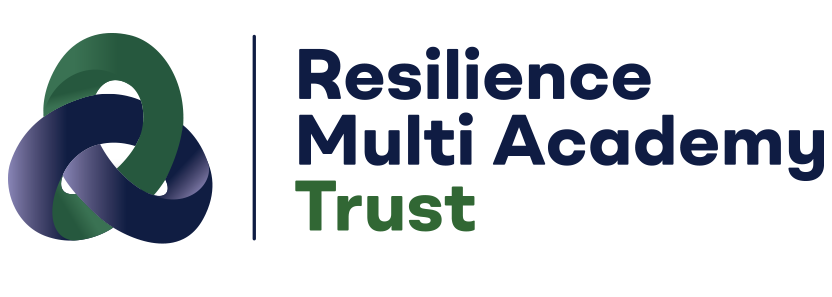Resilience
The Resilience Curriculum Intent
At the Resilience Multi Academy Trust, resilience is not only our name – it is the foundation of our ethos and the heart of everything we do. Our Resilience Curriculum is designed to develop confident, motivated, and successful learners who are equipped to face the challenges of today and the future with strength, optimism, and purpose.
We understand that developing resilience is a complex process that must be nurtured over time. Our curriculum is structured around four key, evidence-based elements: Cognition, Emotion, Habit, and Community. These interconnected components ensure that our students develop the essential knowledge, skills, and attitudes they need to thrive both in and beyond school.
Cognition
Through the teaching of the of the Cognition element, students will develop an understanding of how learning happens so that they are equipped with the knowledge, confidence and resilience to maximise their learning. For example we want our students to understand why they need to pay attention to their teacher and be able to explain this through cognitive science language, rather than just understanding that this is the expectation.
Emotion
Through the teaching of the Emotion element students will develop the crucial skills needed to understand and manage their emotional experiences. Students will learn to recognise and navigate their emotional states, understand triggers and develop effective regulation strategies. Our curriculum aims to cultivate emotionally literate individuals who can thrive academically, socially, and personally, establishing a strong foundation for lifelong well-being.
Habit
Through the teaching of the Habit element students will develop important life skills to be successful in school and beyond, establishing routines and behaviours that enable organisation, learning and independence. We will support students to understand how habits are created, and to develop and maintain habits that lead to success and resilience.
Community
Through the teaching of the community element students will develop the skills and understanding to anticipate, adapt and transform to changes in their communities.
Our curriculum aims to allow students to contribute, embrace, support and benefit from the communities around them.
Our aim is to empower students to navigate the challenges of adolescence with confidence, to aspire beyond their current circumstances, and to develop a strong internal compass that guides their actions and decisions. By embedding the principles of resilience across all aspects of school life, we ensure that our learners leave us not only with qualifications, but with the personal resilience to succeed in their next steps and make meaningful contributions to the world around them.
Year 7
All students have two lesson of Resilience each week. In addition, all students in Year 7 attend Resilience camp. This is 3-day residential camp aims to develop independence, self-confidence and gives our students new and challenging experiences which they can link to the elements of Resilience. The camp provides students with experiences and skills that less privileged students may not have access to.
Year 8
In Year 8 students have 2 lessons of Applied Resilience each week. Applied resilience challenges students to extend their learning into new areas which they have not experienced before and master new knowledge and skills – again building their self-confidence beyond the traditional curriculum. Year 8 Resilience options include: Ice Skating, Fashion Design and Bake Off. In addition, in Year 8 all students complete a charity fundraising project. The focus of the fundraising is a local community charity chosen by the students.
Year 9
Applied Resilience continues in Year 9 and students have 2 lessons each week. The curriculum continues to focus on students developing the 4 elements of resilience through challenges such as Biking, Ceramics and Print Making. As in Year 8 students complete a charity fundraising project this time the focus is on raising awareness and funds for national and international communities.



